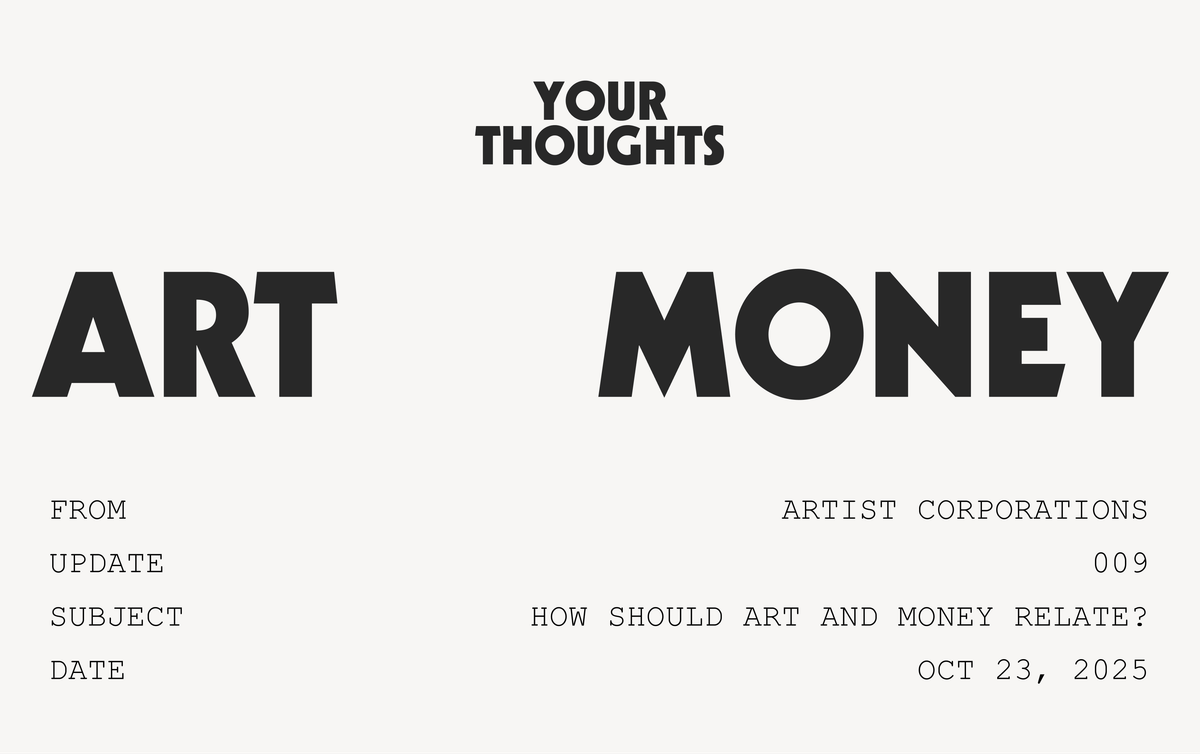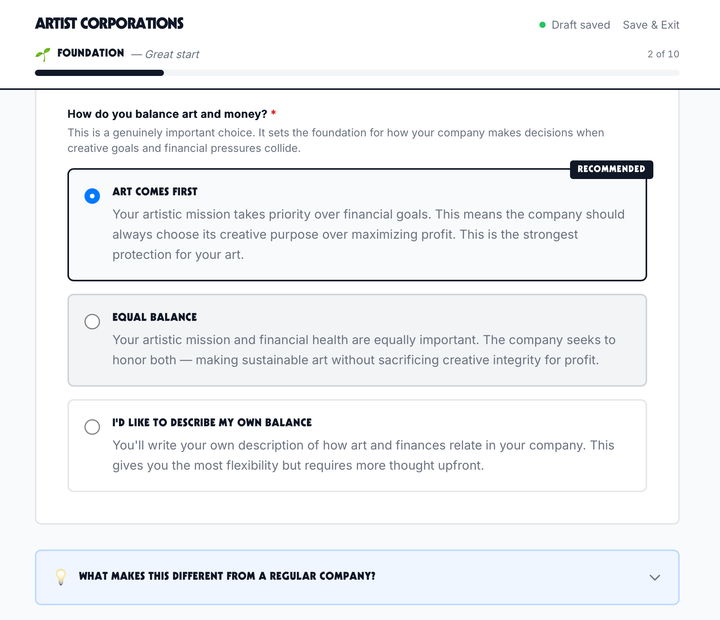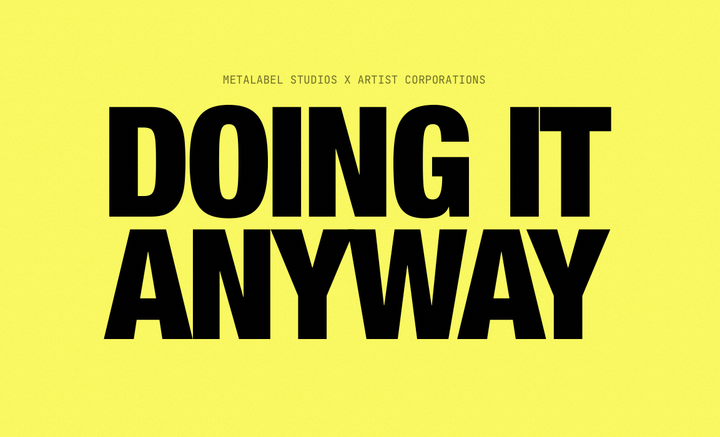Your takes: How should art and money relate?
Artist Corporations Update: 009

In our last update we shared the story of Hollis Frampton’s letter to MoMA after being invited to do a retrospective without pay.
In response, we received a flood of provocative thoughts on the relationship between art, money, and work. Below we’re sharing some of what we heard back. Consider this our first asynchronous town hall.
OK gang, take it away…
Lylia Li writes:
This tension fascinates me:
- Artist pays (manufacturers, resource suppliers) to create their own work
- How do we understand this economically or within the familiar framework of capitalism?
- The artist invests in their art, the same way VCs invest in a product?
- The difference is that the art is not held to the same standards as a product (for eg to generate profit or to scale)
- Another crucial difference is that product ideas need to be backed up by some sort of persuasive quantitative reasoning for why it might be profitable
- What’s the line between art work (which has no value monetarily) and creative work (which does)?
Great questions, well articulated.
Elizabeth U is on a similar train of thought:
Some open questions that come to mind: How many different relationships can we imagine between Artists and people who Enjoy Art, or who Want Art and Artists to Exist?
Which of those relationships already exist (in visible, accessible structures that most people can understand)?
How many more COULD exist?
Which do we want to make Easier?
What are some ways to do that?
Marya Triandafellos says:
Love the letter from Hollis but sad to acknowledge that the situation hasn’t changed.
I don’t suspect it will change until the societal impression that since we artists get to do what we love we should do it for free is repositioned. Not something that will happen by A corps alone, but it helps focus the conversation.
J Beyond Live writes:
Artists solve expression problems for people, when this happens it creates demand for more. Artists solve business supply for distributors, but not demand unless their art is known. If artists can generate demand they can charge distributors a higher price. If an artist can create demand and fulfill it - they can set their price.
The problem every product faces is advertising and distribution. The artist must pay other craftspeople to complete the product - just as MoMA must pay craftspeople to take tickets guard the door and project the film.
However MoMA has a distribution model where they’re able to charge the public for the right to view the work they distribute - distributing art is their product and they’re able to advertise it. In the case of cost to acquire goods - they’re valuing their distribution network as their product and what they actually distribute (modern art) must be acquired at the lowest cost possible in order to generate profit.
The artist corporation is amazing because it allows a new structure for distribution of rights in the search for collaborative creators to help make products and in the percentage of a product that must be sold in exchange for distribution.
However to answer your larger question: yes, artists can be paid for their products when there is marketing and distribution to a paying public in place. Until the artist takes responsibility for all three zones of product delivery - creation, marketing, and fulfillment to a customer - they will continue to have the same problem as Hollis.
Ultimately in business there is little empathy, the bottom line drives everything and creators are underpowered to operate in the environment. Even great creators can’t assume their art is enough that they deserve help with making money off it. This is the journey I’ve been on and I’ll continue. Thank you for adding fuel to the fire and I hope to continue this discussion
Sincerely, Jordan
How do you think about the relationship between your work and money? When is it about the money? When isn’t it? Do you have rules or philosophies that you follow?
Let us know in the comments or by replying to this message.
Peace and love,
Yancey



Comments ()